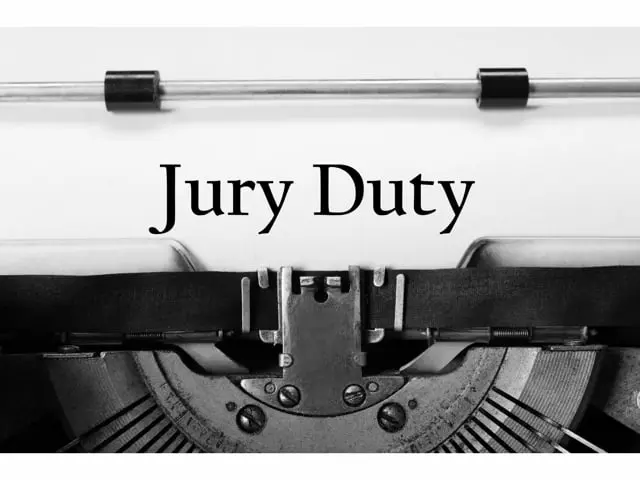When facing a DUI arrest, one of the most pressing concerns is often how to secure release from custody. Understanding the intricacies of DUI bail bonds is crucial for anyone navigating this challenging situation. Before making that important call to a agente de fianzas, it’s essential to arm yourself with knowledge about the process, costs, and potential consequences.
The bail system for Casos de DUI is designed to ensure that defendants appear for their court dates while allowing them to maintain their freedom and continue their daily lives pending trial. However, the process can be complex and financially burdensome, especially for those unfamiliar with the legal system. This comprehensive guide aims to demystify DUI bail bonds and provide you with the information you need to make informed decisions during this critical time.
First and foremost, it’s important to understand that bail amounts for DUI cases can vary widely depending on several factors. In many jurisdictions, first-time DUI offenders may face bail amounts ranging from $500 to $10,000. However, these figures can increase significantly for repeat offenders or cases involving aggravating circumstances. For instance, a felony DUI charge could result in bail amounts soaring up to $50,000 or more.
The severity of the offense plays a crucial role in determining bail. Factors such as blood alcohol concentration (BAC), whether an accident occurred, if injuries were involved, or if there was a hit-and-run incident can all influence the bail amount. Additionally, the defendant’s criminal history, particularly any prior DUI convictions, will be taken into consideration by the court when setting bail.
It’s worth noting that in some cases, particularly for minor first-time offenses, defendants may be released on their own recognizance (OR). This means they can be released without posting bail, provided they sign a written promise to appear in court. However, for more serious DUI charges or repeat offenses, bail is typically required to secure release.
When bail is set, defendants have several options for posting it. The most straightforward method is to pay the full amount in cash directly to the court. This option, while simple, is often not feasible for many individuals due to the substantial sums involved. This is where bail bond companies come into play, offering a vital service for those unable to post the full bail amount themselves.
Bail bondsmen typically charge a non-refundable fee of 10% of the total bail amount. For example, if bail is set at $10,000, the bail bond company would charge a $1,000 fee to post the bond on your behalf. This fee is considered the cost of their service and is not returned even if the charges are eventually dropped or you’re found not guilty.
It’s crucial to understand that when you work with a bail bond company, you’re entering into a legally binding contract. The bondsman is essentially vouching for your appearance in court and taking on the financial risk of the full bail amount. As such, they may require collateral in addition to the 10% fee. This collateral could be in the form of property, vehicles, jewelry, or other valuable assets.
If you fail to appear in court as required, the bail bond company becomes responsible for paying the full bail amount to the court. In such cases, they may hire a bounty hunter to locate and return you to custody. Additionally, they have the right to seize any collateral you provided to cover their losses.
When considering a bail bond company, it’s essential to choose a reputable, licensed provider. Look for companies with positive reviews, transparent fee structures, and clear explanations of their terms and conditions. Be wary of any bail bond agent offering deals that seem too good to be true, as these may come with hidden fees or unfavorable terms.
It’s also important to note that the bail bond process can vary from state to state. Some states have implemented reforma de la fianza measures aimed at reducing reliance on cash bail, particularly for low-level offenses. These reforms may include the use of risk assessment tools to determine whether a defendant should be released on their own recognizance or held in custody pending trial.
For those facing DUI charges, it’s crucial to understand that posting bail is just the first step in a complex legal process. Upon release, you’ll likely face several conditions set by the court. These may include restrictions on driving, mandatory attendance at alcohol education programs, installation of an ignition interlock device in your vehicle, or regular check-ins with a probation officer.
Violating any of these conditions can result in the revocation of your bail and a return to custody. It’s therefore crucial to fully understand and comply with all conditions set by the court. This is where the guidance of an experienced DUI attorney can be invaluable. A skilled lawyer can not only help navigate the bail process but also provide crucial advice on how to protect your rights and build a strong defense strategy.
The financial implications of a DUI arrest extend far beyond the initial bail amount. Legal fees, court costs, fines, and potential increases in insurance premiums can add up to a significant financial burden. It’s important to factor these long-term costs into your decision-making process when considering bail options.
For those unable to afford bail or the fees associated with a bail bond, some jurisdictions offer pretrial services programs. These programs assess a defendant’s risk and may recommend release with supervision as an alternative to cash bail. However, availability and eligibility for such programs vary widely between jurisdictions.
It’s worth noting that the bail system, particularly as it relates to DUI cases, has been the subject of ongoing debate and reform efforts. Critics argue that the current system disproportionately affects low-income individuals who may be unable to afford bail or bail bond fees. This can result in prolonged pretrial detention, which can have severe consequences on an individual’s employment, housing, and family life.
Proponents of bail reform advocate for a system that relies more heavily on risk assessment tools and pretrial supervision rather than financial conditions for release. They argue that such a system would be more equitable and effective at ensuring public safety and court appearances.
However, the bail bond industry and some law enforcement groups have pushed back against these reform efforts, arguing that the current system provides necessary accountability and ensures that defendants appear for their court dates. This ongoing debate highlights the complex interplay between public safety concerns, individual rights, and the practicalities of the criminal justice system.
For those facing a DUI arrest, it’s crucial to remember that the decisions made in the immediate aftermath can have long-lasting consequences. While securing release from custody is often the most pressing concern, it’s important to consider the broader implications of your choices.
One key consideration is the potential impact on your driving privileges. In many states, a DUI arrest can result in an immediate administrative license suspension, separate from any criminal penalties. This suspension can take effect even before you’ve been convicted of any crime. Understanding the timelines and procedures for challenging such suspensions is crucial, as there are often strict deadlines for requesting administrative hearings.
Another important factor to consider is the potential for negociación de clemencia. In some cases, prosecutors may offer reduced charges or penalties in exchange for a guilty plea. While the prospect of resolving the case quickly may be tempting, it’s crucial to understand the full implications of any plea deal. A conviction for DUI, even a reduced charge, can have significant long-term consequences, including impacts on employment opportunities, professional licenses, and immigration status.
For those with professional licenses or security clearances, a DUI arrest can pose additional challenges. Many licensing boards and employers have strict policies regarding criminal charges, particularly those involving substance abuse. It’s crucial to be proactive in addressing these issues, potentially including self-reporting requirements and proactive engagement with substance abuse treatment programs.
The role of technology in DUI cases is another area worth considering. Many jurisdictions now use cámaras corporales y dashboard cameras to record DUI stops and arrests. This footage can be crucial evidence in your case, potentially supporting or refuting the officer’s account of events. Your attorney should work to obtain and carefully review any available video evidence as part of your defense strategy.
Additionally, the accuracy and reliability of breathalyzer tests y pruebas de alcoholemia sobre el terreno are often key issues in DUI cases. Understanding the potential flaws and limitations of these tests can be crucial in building a strong defense. For instance, certain medical conditions, dietary factors, or even environmental contaminants can potentially affect breathalyzer results.
For those arrested for DUI while operating a commercial vehicle, the stakes can be even higher. Commercial DUI cases often involve lower BAC thresholds and more severe penalties, including potential loss of commercial driving privileges. If your livelihood depends on your ability to drive commercially, it’s crucial to seek specialized legal representation familiar with the unique aspects of commercial DUI cases.
It’s also worth noting that DUI charges don’t always involve alcohol. Drugged driving cases, involving both illegal substances and prescription medications, are becoming increasingly common. These cases can be particularly complex, as there’s often no clear standard for impairment equivalent to the BAC thresholds used in alcohol-related cases. If you’re arrested for DUI and have taken any medications, even those prescribed by a doctor, it’s crucial to disclose this information to your attorney.
For non-citizens, a DUI arrest can have serious immigration consequences. Even if you’re in the country legally, a DUI conviction could potentially affect your immigration status or ability to naturalize. It’s crucial to work with an attorney who understands both DUI law and immigration law to navigate these complex intersections.
The psychological impact of a DUI arrest should not be underestimated. Many individuals experience significant stress, anxiety, and depression following an arrest. It’s important to seek support, whether through friends and family, professional counseling, or support groups. Many communities offer resources specifically for individuals facing DUI charges, which can provide both emotional support and practical advice.
Looking to the future, it’s important to consider the potential long-term consequences of a DUI conviction. In many states, DUI convictions remain on your driving record for many years, potentially affecting your insurance rates and employment prospects. Some states have “lookback periods” during which prior DUI convictions can be considered for enhancing penalties on subsequent offenses. Understanding these long-term implications is crucial when making decisions about how to handle your case.
For those who do end up convicted of DUI, many jurisdictions offer diversion programs o alternative sentencing options. These may include alcohol education classes, community service, or participation in victim impact panels. While these programs can be time-consuming and potentially costly, they often provide an opportunity to mitigate some of the more severe consequences of a DUI conviction.
It’s also worth considering the potential civil liability associated with DUI incidents. If your DUI arrest involved an accident, you could potentially face civil lawsuits from other parties involved. These civil cases proceed independently from your criminal case and can result in significant financial judgments against you. Understanding the interplay between criminal proceedings and potential civil liability is crucial for protecting your interests.
As you navigate the complexities of a DUI case, it’s important to remember that every case is unique. The specific facts of your arrest, your personal circumstances, and the jurisdiction in which you’re charged all play crucial roles in determining the best course of action. While this guide provides a general overview of DUI bail bonds and related issues, it’s no substitute for personalized legal advice from a qualified attorney.
In conclusion, facing a DUI arrest can be a daunting experience, but understanding the bail process and your options can help you make informed decisions during this critical time. Remember that posting bail is just the first step in a complex legal process. By educating yourself about the potential consequences and seeking professional legal guidance, you can work towards the best possible outcome for your case. Whether you’re considering a bail bond, exploring alternative release options, or weighing the pros and cons of various defense strategies, knowledge is your most powerful tool in navigating the challenges ahead.
Website citations:
- https://www.thedensonfirm.com/dui-charges/how-much-is-bail-for-a-dui/
- https://www.sevenslegal.com/criminal-attorney/bail-bail-bonds-work/418/
- https://jayfentonlaw.com/navigating-dui-bail-costs-what-to-know-in-2024/
- https://www.shouselaw.com/ca/blog/bail-for-dui/
- https://www.justicebailbonds.com/blog/747-5-key-things-to-know-about-bail-for-dui
- https://www.duilawdefense.com/blog/2021/01/how-bail-bonds-work/
- https://www.andycallifbailbonds.com/faqs/when-does-a-dui-charge-require-a-bail-bond/









